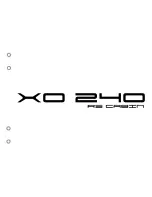
M o d e l Y e a r 2 0 1 4
!
!
4
M a v e r i c k B o a t C o m p a n y , I n c . • 3 2 0 7 I n d u s t r i a l 2 9 t h S t . • F o r t P i e r c e ,
F l o r i d a 3 4 9 4 6 • ( 7 7 2 ) - 4 6 5 - 0 6 3 1 o r ( 8 8 8 ) - s h a l l o w • F a x : ( 7 7 2 ) 4 8 9 - 2 1 6 8
ENGINE BREAK-IN
Engine stop switch (above)
Engine Break-In Period
New engines require a period of break-in to allow the
surfaces of the moving parts to mate evenly. Different
engines require different break-in periods and methods.
For instructions on break in methods, refer to your
Yamaha Engine Owner’s Manual for the correct break-in
procedures and times for your model engines
Engine Stop Switch
If activated, the spring loaded engine stop switch will
automatically shut down the engine during emergency
situations to prevent uncontrolled or unattended
operation. Certain emergency conditions (e.g., turbulent
water, wakes, unanticipated movement) may impair a
person’s ability to operate the craft safely. The switch,
located on the helm, must have the safety lanyard
attached at its base. This activates the protective
shutdown circuitry.
Securely attach the other end of the lanyard to the
operator of the boat. If the operator moves, falls or is at
an unsafe distance from the steering wheel, tension on
the lanyard will pull it from the switch. When the lanyard is
removed, the engine stop switch is released and
automatic engine shutdown occurs.
Engine Stop Switch
An engine stop switch system that is not used or does not function properly can cause death or serious injury.
DO NOT operate the boat if the engine stop switch system does not function properly. Go to a Hewes Dealer to
have this resolved immediately
The lanyard should be securely attached to the boat operator at all times that the
engine is on.




































